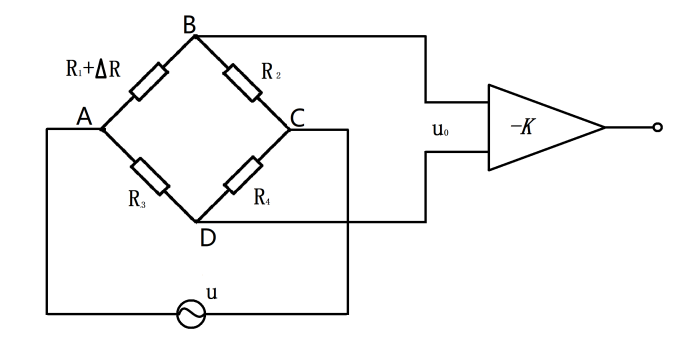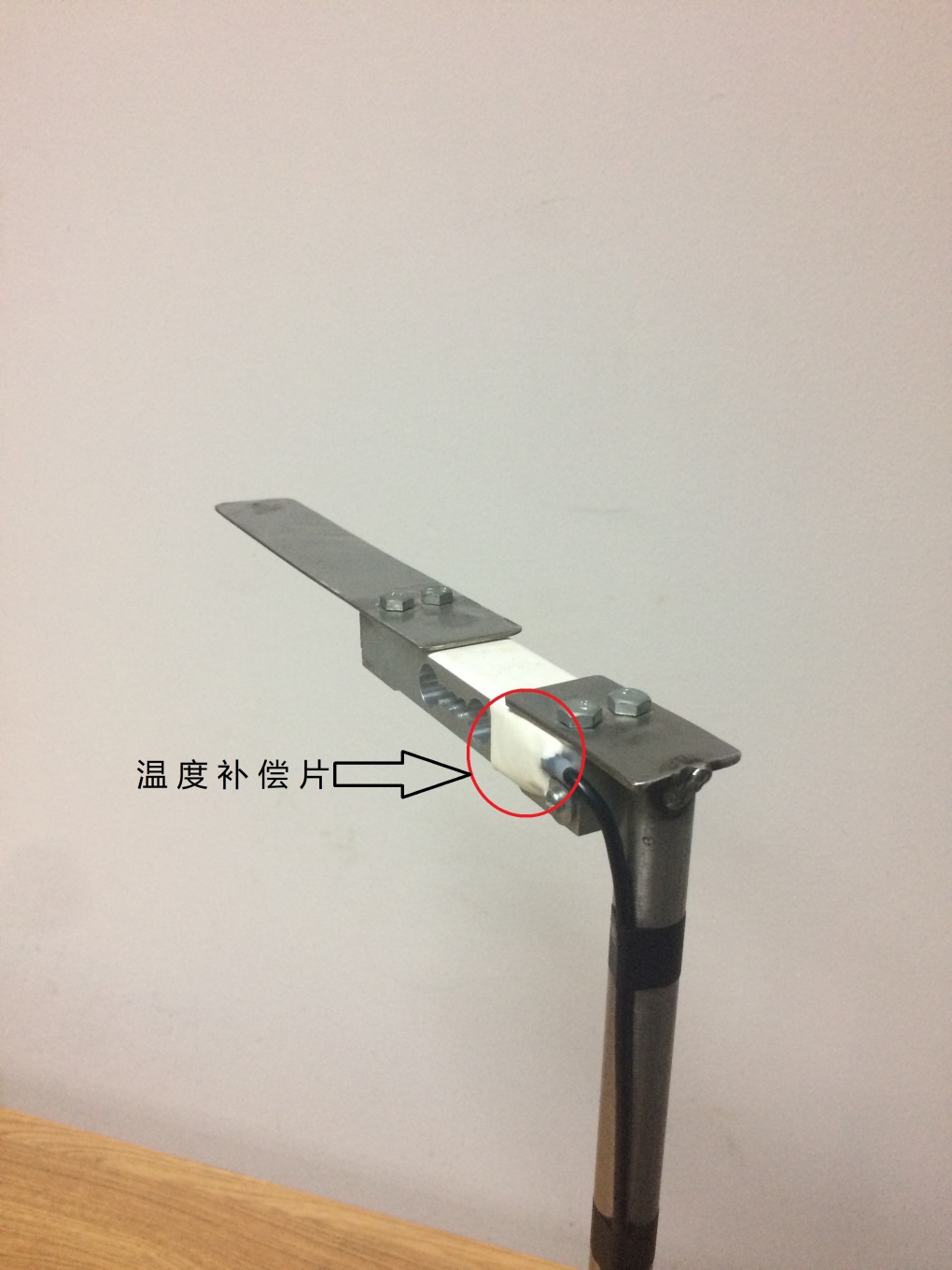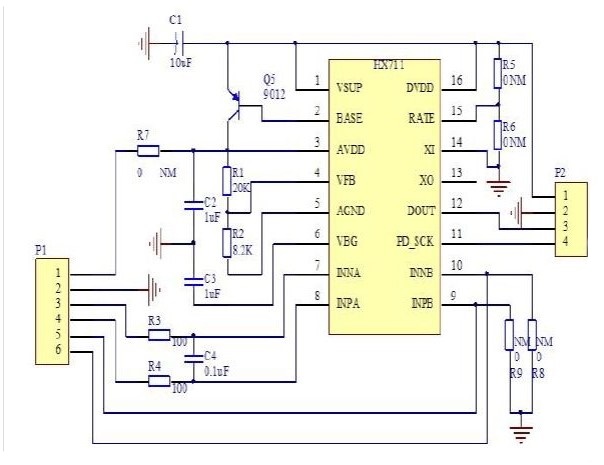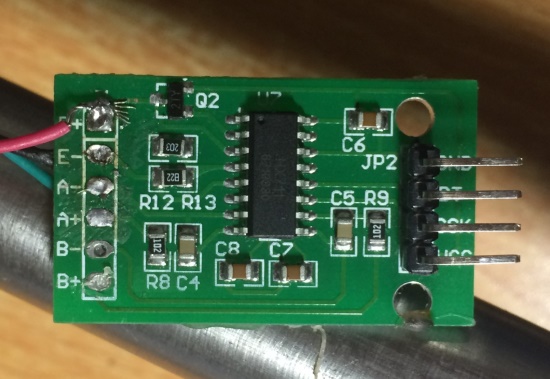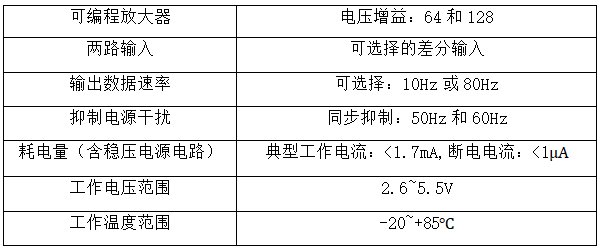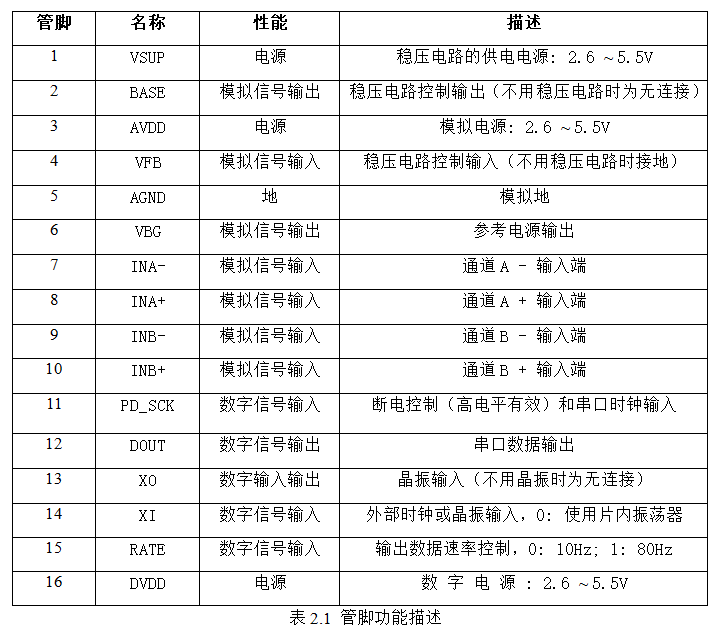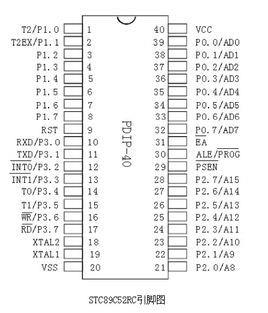电测法测量杨氏模量仪制作与原理研究毕业论文
2020-07-11 18:19:50
摘 要
“杨氏模量”是重要的物理学参数之一。如今,对于各种金属丝、钢板、固体物所受的微小形变的测量,在科学实验、工业现场、建筑土木等领域都有着十分广泛的应用。[01]由于“杨氏模量”的传统测量方法——“光杠杆测量法”步骤繁琐,而且实验耗时相对较长。所以我本着研究并学习的态度, 期望开发高性能的作品 ——“电测法测量杨氏模量系统”。这一课题的成果对于自动化技术、大学物理实验知识及信息技术的学习具有良好的促进作用。
本文介绍了“电测法测量杨氏模量仪”的实验装置及设备性能创新点。该设计主要利用了“电阻应变片”这种元器件。 “电阻应变片”能将被测量物上的受力变化进一步转换为电阻变化。电阻应变片有着结构简易、体积小、应变精度高、造价低、线性度高等特点。在自动化测量方面,该元器件有着十分广阔的应用前景。本装置设计将其组成惠斯登电桥粘附在弹性体上,弹性体受力后,桥臂间电压不平衡输出,该输出信号正比于弹性体受力,电信号通过A/D转换模块转换为数字信号。可以方便地被单片机接收并根据程序运算,再通过显示屏实时显示出被测物的受力。该毕业设计通过软件算法,实现了惠斯登电桥输出信号的接收与计算[02],也避免了该类元器件常常存在的“零点漂移”等问题。“电测法测量杨氏模量仪”在“杨氏模量”的测量过程中,具有实验耗时少、人为误差小、测量精度高等特点。
关键词:电阻应变片、杨氏模量的测定、A/D转换芯片、51单片机、液晶显示屏
An electronic measurement method is used to measure young's modulus
Abstract
"Young's modulus" is one of the important physical parameters. Nowadays, it is widely used in the fields of scientific experiment, industrial field, construction and civil engineering, which measure the small deformation of metal wire, solid object and steel plate. The traditional measurement method "optical lever measurement" is complicated and time-consuming.Therefore, through the study and research, the work is expected to design a high performance of the "electronic measuring young's modulus " system. The design has a good effect on promoting automation and information technology learning.
In this article, I introduced the experimental device for "measuring young's modulus by electric measurement". This design mainly applies “the resistance strain gauge.”It is a kind of components that measures "strain by force". It can make "strain by force" into resistance of resistance changes. The resistance strain gauge has the characteristics of simple structure, miniaturization, high precision and low cost, and it has a very wide application prospect. So,I designed a device to measure the strain of the elastomer by Wheatstone bridge sensor by a resistance strain gauge. When the elastic body is stressed, the voltage of the bridge arm is unbalanced, and the output signal is proportional to the force of the elastomer.And making the measurement results by the electronic scale-specific A / D converter chip (data acquisition card) .It converts electrical signals into digital signals. Therefore, it can be received and operated by 51MCU, showing the force of the measured object through the LCD screen. I use software programming to realize the receiving and calculation of output signals, and improve the measurement accuracy of the whole system. [02]
Experimental apparatu has the characteristics of small experiment time, small human error and high measurement accuracy.
Key words: Resistance strain gauge, the determination of young's modulus, A/D conversion chip, 51 MCU, LCD screen display
目 录
引 言 1
第一章 课题综述 2
1.1课题各部分系统的功能分析 2
1.2 课题系统原理框图 2
1.3 课题划分模块 3
第二章 电测法测量杨氏模量:主要硬件介绍 4
2.1不平衡电桥对微小形变与受力的测量 4
2.2 ADC—— “HX711”简介 8
2.3 单片机处理系统简介 10
2.4 液晶显示模块12864简介 10
第三章 系统软件与程序简介 12
3.1 C语言 12
3.2 本系统主要控制程序 12
第四章 实验装置的设计与功能调试 16
4.1电测法测量杨氏模量的原理 16
4.2仪器的使用方法与特性参数介绍 19
4.3与传统方法的实验数据对照 20
第五章 总结与展望 23
5.1 研究过程中遇到的困难及其解决方法 23
5.2 工作总结和展望 23
参考文献 24
致谢 25
引 言
近年来,电子测量技术随着社会需求的迅速发展而迅猛发展,许多物理量的传统测量方法面临着淘汰与根本性变化的局面。在普通大学物理实验中,“惠斯登电桥”主要用来测量微小电阻的变化,而在实际的工业生产测量中,“惠斯登电桥”则是一种普遍使用的仪器。[02]本毕业设计的实验装置,通过引入“电阻应变片”,从而拓宽了“惠斯登电桥”的测量应用,使其不在局限于电阻的测量,推广到测量受力与微小位移上。[03]众所周知,基于等强度悬臂梁受力形变与电阻值变化成线性关系的原理,可以利用贴有电阻应变片的悬臂梁测量其受力产生的应变。因此,悬臂梁随钢丝形变,只要通过电阻值变化的测量,就可以得到相应形变值。通过杨氏模量的计算公式,计算出相应变化钢丝的杨氏模量系数E(N/)。
本课题研究了钢丝“杨氏模量”的电子测量方法,主要包括了前端应变系统、数据处理系统以及液晶显示系统。(其中前端应变系统是粘贴有组成桥式电路“电阻应变片”的弹性体。)工作原理是因为弹性体受到压力而产生形变,使得电桥不平衡,从而导致了桥臂间有电信号输出。[04]随后电信号经由放大电路,再由A/D转换模块转换成数字信号。为了计算钢丝形变与受力,我基于STC89C52单片机进行编程,将所测得的弹性体(悬臂梁)受力与钢丝形变实时显示在LCD12864液晶显示屏上。[08]由于不同材质的悬臂梁有不同的弹性系数,为方便新旧悬臂梁的更换,我设计了一个按键系统,通过按键可以调节悬臂梁的弹性系数。该实验装置可测量钢丝悬挂0~10kg重量时的受力与微小形变。
相关图片展示:
